Buffers and flexible accounting rules, recommended the ECOFIN
Adelina Marini, July 8, 2009
 The lack of counter-cyclical buffers and flexibility of the accounting rules are important factors for the amplification of the financial crisis. This is one of the conclusions of the EU finance ministers who gathered in Brussels on Tuesday to form their position before the G-8 summit today in L'Aquila and the G-20 summit in September where the financial and economic crisis will be in the centre of discussions. That is why the EU finance ministers agreed the future European Systemic Risk Board (ESRB) will have an important role to play in this respect.
The lack of counter-cyclical buffers and flexibility of the accounting rules are important factors for the amplification of the financial crisis. This is one of the conclusions of the EU finance ministers who gathered in Brussels on Tuesday to form their position before the G-8 summit today in L'Aquila and the G-20 summit in September where the financial and economic crisis will be in the centre of discussions. That is why the EU finance ministers agreed the future European Systemic Risk Board (ESRB) will have an important role to play in this respect.
To limit the repeat of such crises in the future the ECOFIN recommended the introduction of forward looking provisioning, which consists in constituting provisions deducted from profits in good times for expected losses on loan portfolios and to align the accounting standards which currently do not allow for the recognition of expected losses. That is why ECOFIN called on banking supervisors to give priority to amending current accounting rules and allowing for more flexibility for
provisioning expected losses which was at the bottom of the financial crisis.
Beside this the European finance ministers agreed on the establishment of counter-cyclical capital buffers, i.e. to be raised in good times and to be drawn down in downturns. But the ministers underline in their conclusions that it is important that counter-cyclical capital buffers are not perceived as new minimum capital levels.
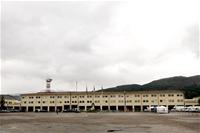 In the meantime Pope Benedict XVI for the first time condemned the “grave deviations and failures” of capitalism exposed by the financial crisis and issued a strong call for a “true world political authority” to oversee a return to ethics in the global economy. The pontiff called for strong government regulations in the eve of the G-8 summit which starts today in Italy. Beside this the pope asked for new "forms of redistribution of wealth" which, nonetheless, are expected to be one of the disputable points at the summit, attended by 39 leaders and international organisations representatives. Italy and France, specifically are some of the countries that do not fulfill their engagements to aid developing countries, the "Financial Times" reports.
In the meantime Pope Benedict XVI for the first time condemned the “grave deviations and failures” of capitalism exposed by the financial crisis and issued a strong call for a “true world political authority” to oversee a return to ethics in the global economy. The pontiff called for strong government regulations in the eve of the G-8 summit which starts today in Italy. Beside this the pope asked for new "forms of redistribution of wealth" which, nonetheless, are expected to be one of the disputable points at the summit, attended by 39 leaders and international organisations representatives. Italy and France, specifically are some of the countries that do not fulfill their engagements to aid developing countries, the "Financial Times" reports.
The G-8 summit was preceded by some quite indicative bilateral meetings in the last 7 days. The first was between the French president Nicolas Sarkozy and the Swedish prime minister Fredrik Reinfeld whose country took the EU Presidency on the 1st of July. They discussed the financial 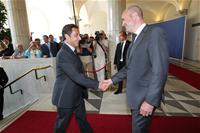 regulation in the EU and climate change but without any details being released. Some days later Mr. Sarkozy met with the British prime minister Gordon Brown who is an ex-minister of finance. The main focus in their discussions was the oil prices which cause serious inflationary pressures in the developed countries and are an obstacle to make clear and thorough analysis of which sectors of the economy are "healed" and which still need serious attention. Mr. Brown and Mr. Sarkozy insisted for more transparency in forming the prices of oil. In fact this issue is not brought for the first time, since it became clear that some export countries are increasing the prices artificially so as to compensate the sharp decline in their income against the background of last summer's record levels.
regulation in the EU and climate change but without any details being released. Some days later Mr. Sarkozy met with the British prime minister Gordon Brown who is an ex-minister of finance. The main focus in their discussions was the oil prices which cause serious inflationary pressures in the developed countries and are an obstacle to make clear and thorough analysis of which sectors of the economy are "healed" and which still need serious attention. Mr. Brown and Mr. Sarkozy insisted for more transparency in forming the prices of oil. In fact this issue is not brought for the first time, since it became clear that some export countries are increasing the prices artificially so as to compensate the sharp decline in their income against the background of last summer's record levels.
The world economy would be discussed on a working lunch by the G-8 leaders in the devastated by a strong earthquake Italian town of L'Aquila.
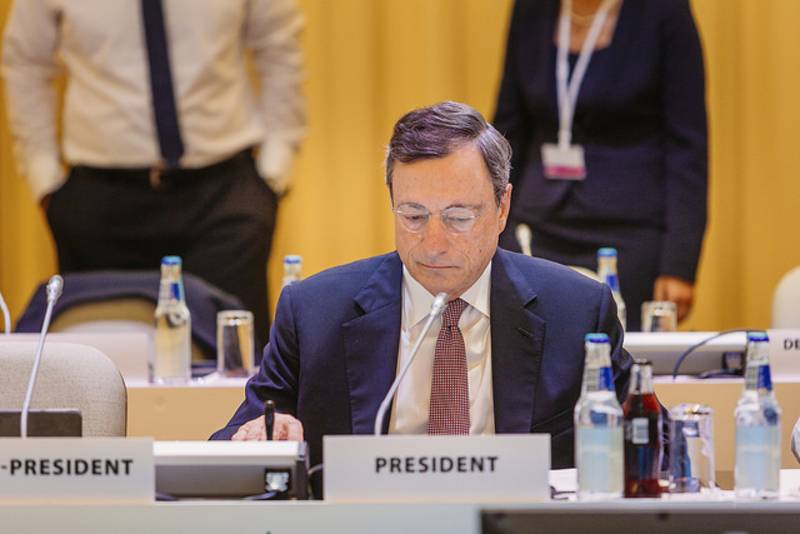 Mario Draghi | © ECB
Mario Draghi | © ECB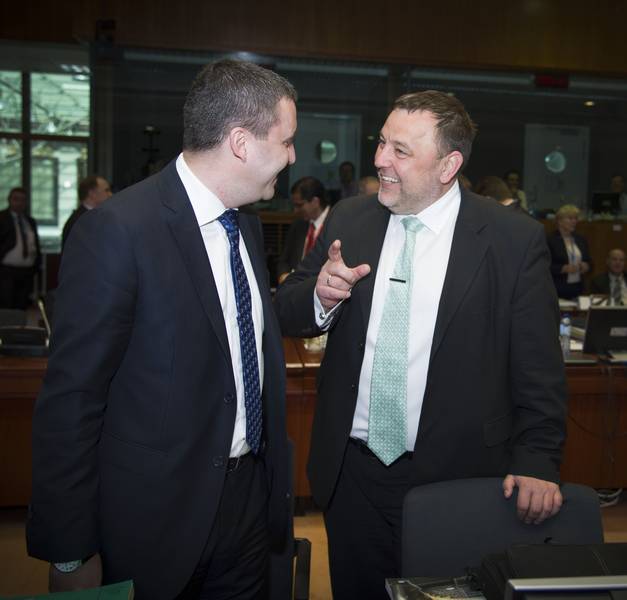 Vladislav Goranov, Sven Sester | © Council of the EU
Vladislav Goranov, Sven Sester | © Council of the EU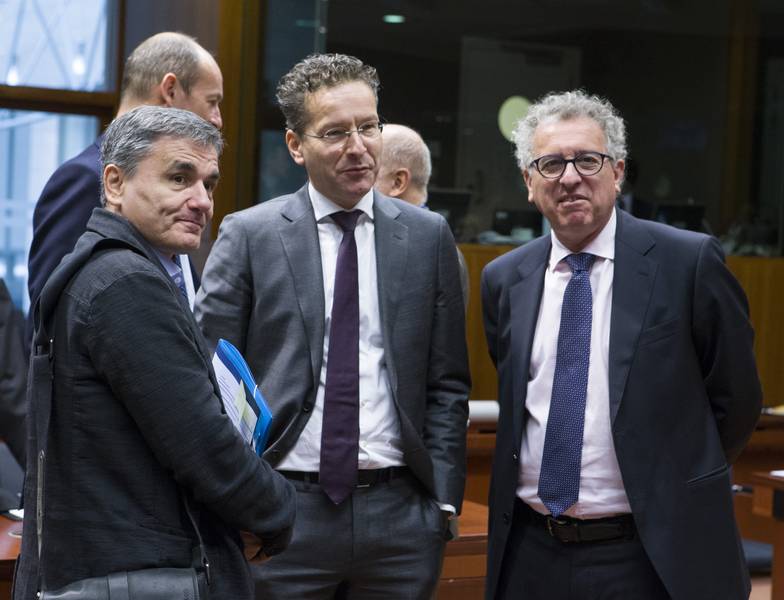 Tsakalotos, Djisselbloem, Gramegna | © Council of the EU
Tsakalotos, Djisselbloem, Gramegna | © Council of the EU